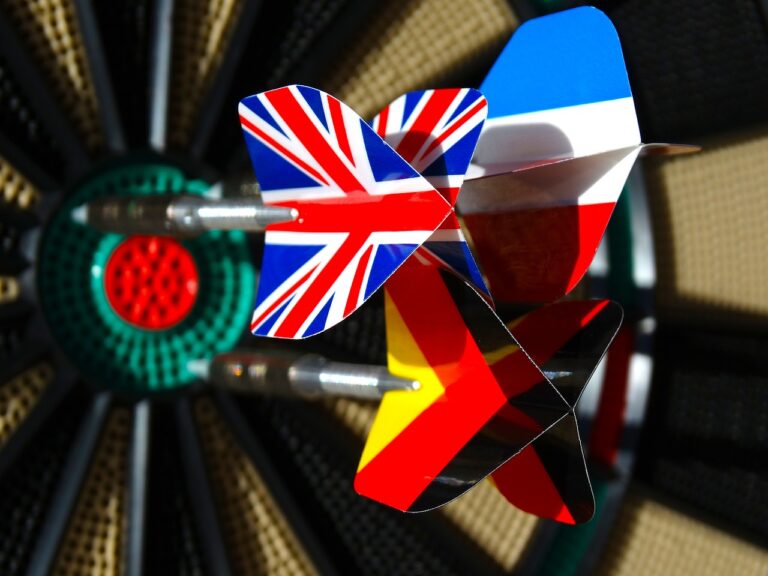The Psychology of IPL Auctions: Strategies and Decision-Making Processes
11xplay pro, Icebook9: When it comes to the Indian Premier League (IPL), the auctions play a crucial role in shaping the dynamics of the tournament. The auction process involves franchise owners bidding for players to build their teams for the upcoming season. However, what many people may not realize is that there is a psychological aspect to these auctions that influences the strategies adopted by team owners and the decision-making processes involved. In this article, we will delve into the psychology behind IPL auctions, exploring the strategies employed by franchise owners and the cognitive biases that can impact their decisions.
Understanding the Psychology of Auctions
Before we delve into the specifics of IPL auctions, it is essential to understand the psychology of auctions in general. Auctions are not just about placing bids; they involve complex decision-making processes that are influenced by a variety of factors.
One of the key psychological elements of auctions is the concept of scarcity. When a player is up for auction, there is a limited supply of that player, which creates a sense of urgency among bidders. This scarcity can drive up the bidding price as teams compete to secure the player for their squad.
Another important aspect of auctions is the element of competition. The presence of other bidders can trigger a competitive streak in individuals, leading them to bid higher than they initially intended. This competitive dynamic can escalate the bidding process and result in inflated prices for players.
Strategies Employed in IPL Auctions
Franchise owners in the IPL employ a variety of strategies during the auction process to build a strong team within the constraints of their budget. These strategies are often influenced by psychological factors that impact decision-making.
Budget Allocation
One of the most crucial aspects of IPL auctions is budget allocation. Each franchise is given a fixed budget to build their team, and how they allocate this budget can determine their success in the tournament. Owners may choose to spend a significant portion of their budget on star players, leaving less money for the remaining players. This strategy can pay off if the star players perform well, but it also carries a high level of risk.
Risk Aversion vs. Risk Taking
Franchise owners must also navigate the balance between risk aversion and risk-taking during auctions. Some owners may prefer to play it safe and bid conservatively on players with a proven track record. Others may be more willing to take risks on young, unproven talent in the hopes of discovering a diamond in the rough. The decision to adopt a riskier strategy can be influenced by factors such as past auction outcomes, team composition, and overall team strategy.
Player Valuation
Player valuation is another critical aspect of IPL auctions. Franchise owners must assess the value of each player based on factors such as their performance history, current form, and market demand. However, cognitive biases can sometimes cloud judgment and lead to inflated valuations for certain players. The “anchoring effect,” for example, occurs when individuals rely too heavily on the first piece of information they receive (such as a player’s initial bidding price) when making decisions.
Team Composition
The composition of a team is crucial to its success in the IPL. Franchise owners must consider not only the individual skill sets of players but also how they will fit together as a cohesive unit. The psychological concept of “groupthink” can sometimes come into play, leading owners to prioritize harmony and camaraderie over individual talent. Finding the right balance between star power and team chemistry is a delicate art that requires careful consideration.
The Role of Emotions
Emotions can also play a significant role in IPL auctions, influencing both bidding strategies and decision-making processes. The thrill of competition, the fear of missing out on a coveted player, and the pressure to perform can all have a profound impact on owner behavior during auctions. Being aware of these emotional triggers and learning to regulate them can help owners make more rational, strategic decisions.
Cognitive Biases and Decision-Making
Cognitive biases are inherent tendencies that can affect decision-making processes, leading individuals to deviate from rationality and make suboptimal choices. In the context of IPL auctions, several cognitive biases can come into play, including:
Confirmation Bias
Confirmation bias occurs when individuals seek out information that confirms their preexisting beliefs or hypotheses while ignoring contradictory evidence. In the context of auctions, owners may focus on data that supports their valuation of a player while disregarding signs that suggest the player may not be worth the price.
Endowment Effect
The endowment effect is a cognitive bias that causes individuals to value an object they own more highly than they would if they did not own it. In IPL auctions, this bias can lead owners to overvalue players they have already bid on, simply because they have invested time and effort into acquiring them. This can result in inflated prices and poor decision-making.
FAQs About The Psychology of IPL Auctions
1. How do cognitive biases impact decision-making in IPL auctions?
Cognitive biases can lead franchise owners to deviate from rational decision-making, causing them to overvalue certain players or make bids based on emotional impulses rather than logical analysis.
2. What strategies can franchise owners use to mitigate the influence of cognitive biases in IPL auctions?
Franchise owners can mitigate the influence of cognitive biases by staying informed about potential biases, seeking input from a diverse group of advisors, and using data-driven analysis to inform their decisions.
3. How important is emotional intelligence in the context of IPL auctions?
Emotional intelligence is crucial in the context of IPL auctions as it helps owners regulate their emotions, make sound decisions under pressure, and build effective communication and relationships with other stakeholders.
4. How can franchise owners leverage psychological insights to gain a competitive edge in IPL auctions?
Franchise owners can leverage psychological insights by studying the behavior of other owners, understanding market trends and player valuations, and employing strategies that take into account the psychological dynamics at play during auctions.
In conclusion, the psychology of IPL auctions is a multifaceted and often overlooked aspect of the tournament. By understanding the psychological factors that influence decision-making processes and strategies, franchise owners can make more informed and strategic choices during auctions. From budget allocation to player valuation, cognitive biases to emotional intelligence, owners must navigate a complex web of psychological dynamics to build winning teams and secure success in the IPL.







